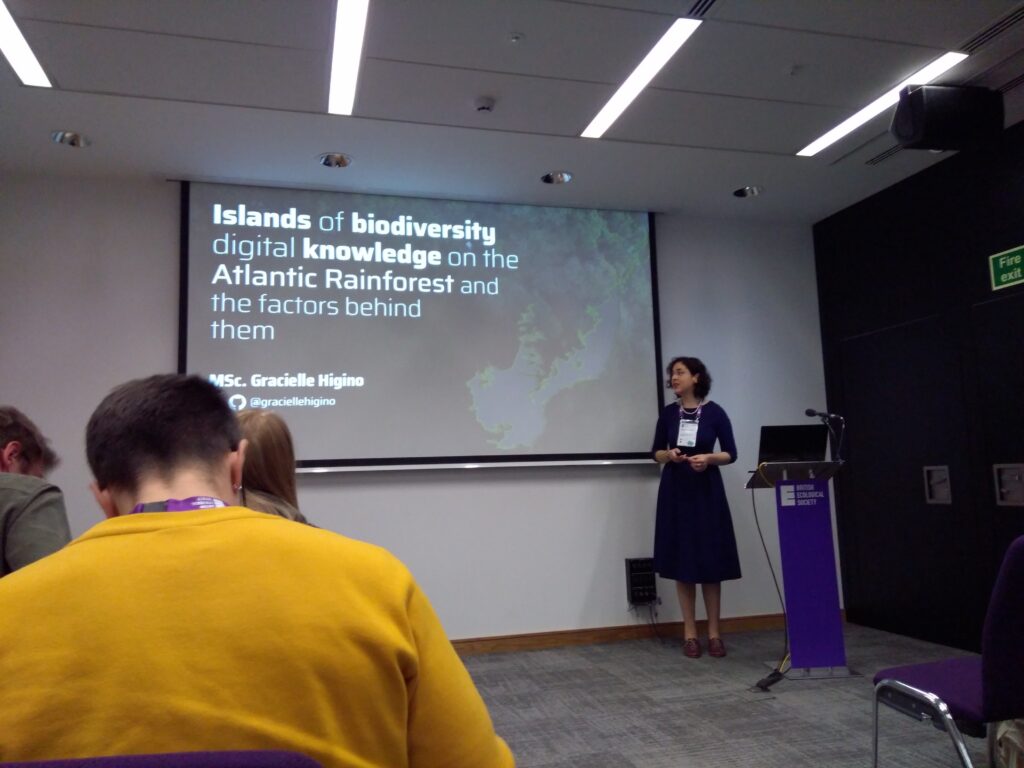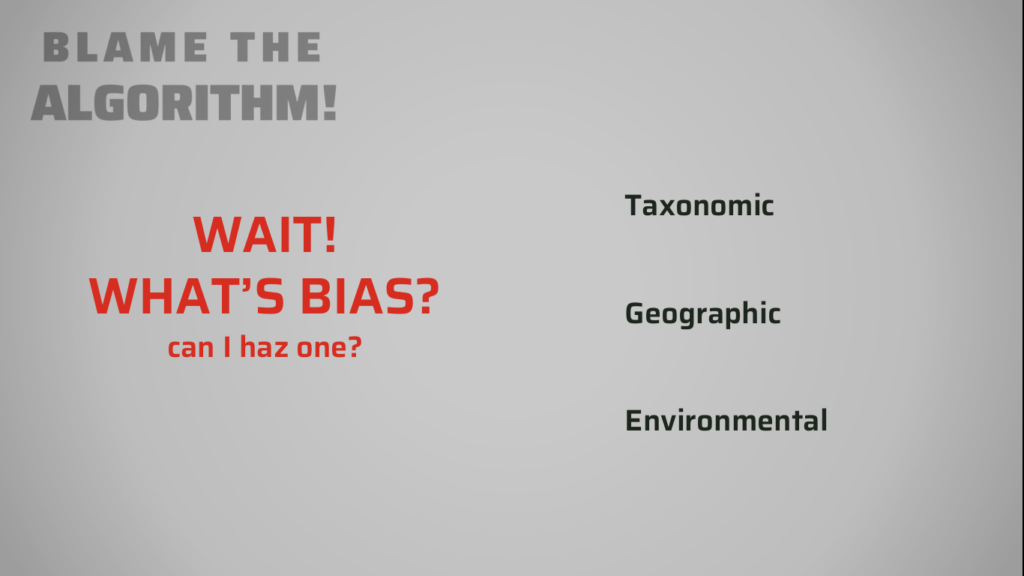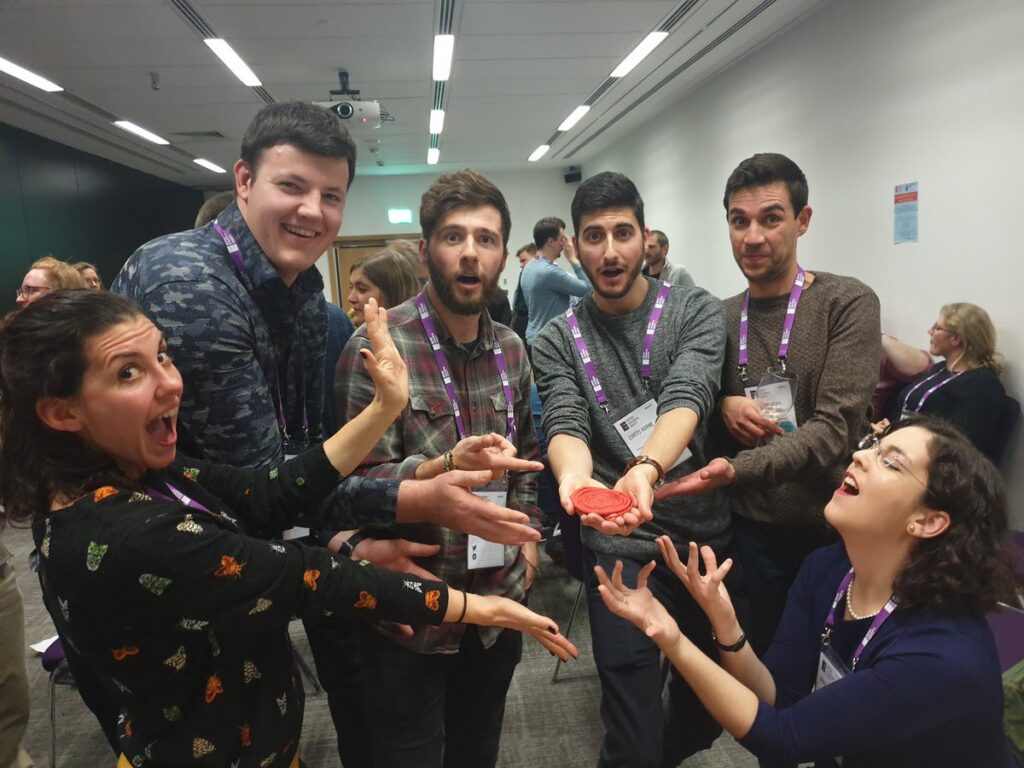For someone who started the year of 2019 not quite believing in my own research, being in an international conference in December showcasing my latest results and making people intrigued by what I’ve found was a huge leap.
From December 10th-13th I was in the BES Annual Meeting in Belfast, Northern Ireland, and the first morning was a landmark in my career. It was the first time I was in an international conference, and the first time I had the chance to make an oral presentation about my research. Giving that the days before the meeting I was extremely stressed about not having the results I wanted, the first thing I learned was that, in science, every bit of result counts.

In my presentation, I talked about how the digital knowledge on the biodiversity of terrestrial vertebrates in the Atlantic Rainforest is hugely biased and incomplete, even with the recent (Herculean) efforts to gather information in data papers. I investigated three kinds of biases, and I’ll try to summarize them here.

Taxonomic bias
Do you think we know more about birds than mammals? Or do we know more about reptiles? Or maybe our knowledge about these groups are correlated?
Well, I found that we know way more about birds and mammals than we do about reptiles and amphibians. More than that, the places where we know more about birds, we also know more about mammals, and the same happens to reptiles and amphibians. This may be an outcome of how science is organized: herpetologists are scientists that study these last two groups, so probably the way they do research is highly correlated. On the other hand, mammals and birds are majorly endothermic groups with similar biographical stories, so maybe mastozoologists and ornithologists tend to revisit regions with similar environmental characteristics.
Geographic bias
It is intuitive to think that we know more about the biodiversity of easily accessible places or of those near research centres. This is true for plants in Brazil, where we know a lot more about them near the roads, and it’s also true for our vertebrates. The majority of unique data comes from the southeast of Brazil, where most traditional research centres, museums and funding are.
Environmental bias
Although social variables can explain the geographic bias of our data, I wondered if environmental factors (such as temperature, biomass availability and topography) could also guide the research agenda of our scientists.
The answer is: it depends. For example, in the northeast and central regions of Brazil, the temperature is a good predictor to how much we know about reptiles. On the other hand, vegetation availability is more important for our knowledge about mammals in the north and southwestern regions of the Atlantic Rainforest.
After the talk
After the storm of excitement that preceded my talk, I could appreciate a good amount of amazing talks from other scientists. Ironically, the one right after mine was about how biases don’t matter that much, but sampling efforts do, when it comes to species distribution model performance (at least for birds in Ireland). This was amazing, because Willson and I got to talk about our ideas, how we plan to test them, and why our views are somewhat different about the same topic. This is the magic of conferences!
I also got to watch Mathilde’s talk about how species with less and negative interactions are more persistent in an evolutionary timescale, William’s poster about the effects of climate and interactions in predicting species range limits, and Oliver’s talk about how pollen can help us understand the past, present and future of Araucaria in Brazil. We also had the chance to brainstorm about inclusiveness in science, outreach and education initiatives, and to challenge our creativity to represent Macroecology with plastic clay.

After MozFest (read about it here and here), it was really difficult for me to be interested in conventional academic conferences, but BES Annual Meeting was a great surprise. Their concern about inclusion, diversity, minimal environmental impact, the design to promote connection and the friendly crowd of attendees exceeded my expectations. I am truly grateful to the PoisotLab, BIOS² and QCBS for making that experience possible: thank you!
Read the original blog here.
Atlantic Rainforest Photo Credit: VJ pixel
